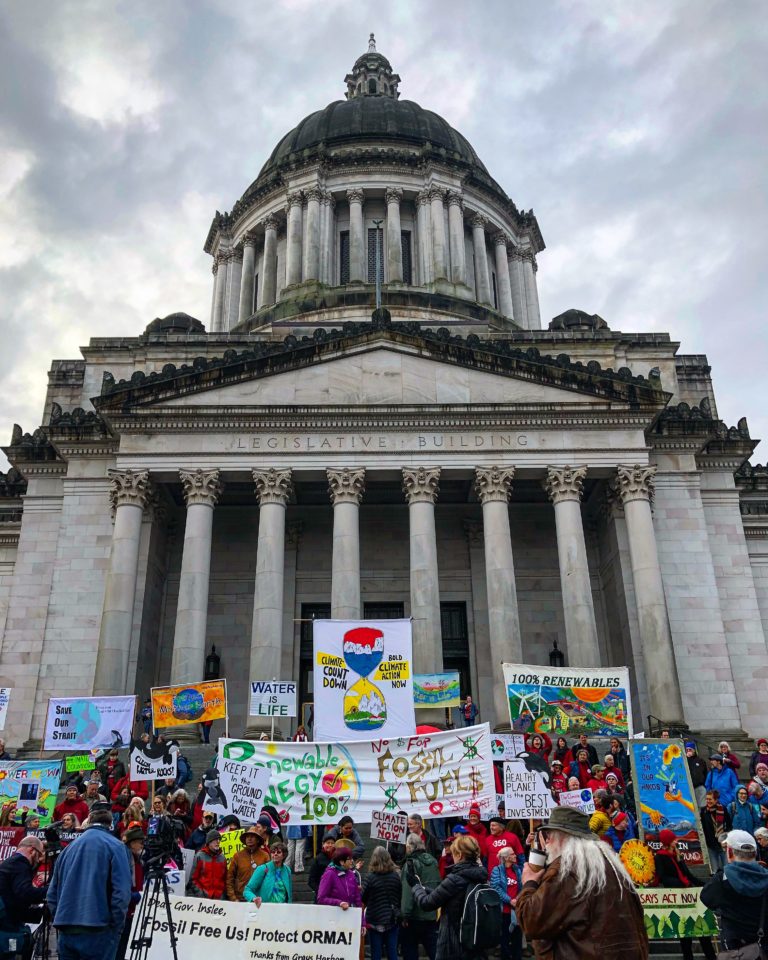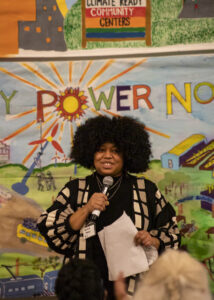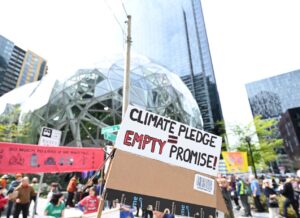
We are here to demand that the Washington State legislature deal with the truth.
For well over a decade, anyone following the news has known that climate change is a matter of profound urgency. Scientists and oil company executives have known it since at least 1959. In 1977, an Exxon scientist wrote that “man has a time window of five to ten years before the need for hard decisions regarding changes in energy strategies might become critical.”
In other words, “hard decisions” were deemed necessary by 1987. And yet here we are.
There’s a strange comfort to this—people have been talking about the urgency for so long that it feels less dire. With visceral alarm, we may understand that this is what is driving the extremities of flooding and landslides, droughts and wildfires…but most days, after all, are pretty normal. At least here.
Humans are adaptable, is the problem. We’ve adapted to these periodic disasters too—however disturbing we find them.
The NOAA stats for December aren’t out yet, but November marked the 395th month in a row of temperatures over the 20thcentury average—despite the fact that people began widespread use of fossil fuels in the Industrial Revolution, so the 20th century average was already warmed by 200 years of emissions.
In Washington State, as others have mentioned, we’ve already seen seriously increased flooding, wildfires, ocean acidification, and more. But the Northwest continues to be one of the least impacted places in the country, maybe the world…human adaptability looks notably different in Puerto Rico right now. Or Syria. Or Yemen. In many places, adaptability means anything but looking away.
And that—above all—is why we can no longer accept even another year’s worth of delay by our legislature. We know the excuses—it’s the Republicans, we might lose the majority, it’s because environmentalists can’t agree. This just doesn’t cut it. There is nothing acceptable about this lack of focus—this outright obstruction—when business as usual means death and displacement for hundreds of thousands of people already…and soon, for millions or tens of millions.
We are skating on the thinnest of ice. In June, the former UN climate chief told us that we have less than 3 years to stave off runaway, irreversible climate change. Another researcher agreed, saying that it’s “brutally clear: while the world can’t be healed within the next few years, it may be fatally wounded…[before] 2020.”
So the point is not just that this is as urgent as urgent can possibly be. The point is that we CAN do this now—and in two or three years, it will no longer be possible.
Because of hydropower, because of education levels, because of progressive urban politics…the necessary changes are actually much easier here than in many places.
What we are demanding is simple, and is the only sane route forward: do not allow a single new fossil fuel project in the state, because each one locks us in to decades of fossil fuel use. At the same time, move with genuine focus and ambition to 100% renewable energy within the next ten years. Do they think we can’t? Do they believe that we lack the necessary resolve and creativity and love for our children? We do not—Washington state is more than capable of this. We can be a beacon.
I dare them to go home and look their kids or grandkids in the eye, and then sit down and tell us why they cannot act with even a grain of courage for their sakes. Moral clarity is a gift that we need to live up to. We possess that gift, and if they do not, we will replace them.
Make no mistake, we will be back.
(Emily Johnston’s remarks from Climate Countdown: Day 1)









